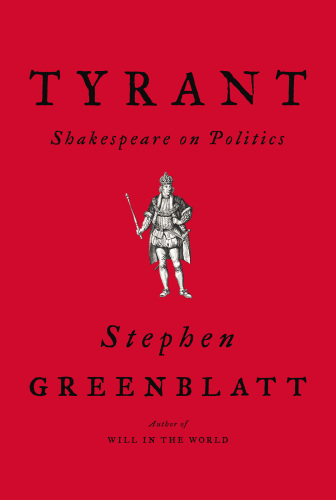
Tyrant
Shakespeare on Politics
کتاب های مرتبط
- اطلاعات
- نقد و بررسی
- دیدگاه کاربران
نقد و بررسی

February 12, 2018
Greenblatt (The Rise and Fall of Adam and Eve), a Harvard humanities professor, offers a canny parallel to contemporary political concerns in this survey of tyrannical figures in Shakespeare’s works. Using the protagonists of Coriolanus, King Lear, Macbeth, and the Wars of the Roses plays, among others, Greenblatt convincingly and bracingly explores the circumstances that allow for the rise of autocratic rulers. His quotations furnish vivid examples of how bullying and intimidation stifle opposition—Richard III declares “I’ll make a corpse of him that disobeys”—and of how public figures can get away with brazen lies—a rebel leader in Henry VI, Part 2 claims an aristocratic mother, though in truth “she was a midwife.” Nor does he ignore the role of sex as a motivator for tyrants and the role of women in defying autocrats, using as respective examples the self-loathing, misogynistic Richard III’s declaration that he was not “made to court an amorous looking glass” and Cordelia’s refusal to flatter her father at the start of Lear. Though Greenblatt names no names from current events, the reader can fill in the blanks with any number of contemporary politicians. The chapters on Richard III are perhaps the most visceral and immediate, but the entire book is full of insight, both for lovers of literature and for students of history and politics.

March 1, 2018
In the guise of Shakespearean analysis, Greenblatt (John Cogan Univ. Professor of the Humanities, Harvard Univ; Will in the World), prompted by the election of Donald Trump, draws thinly veiled analogies between some of Shakespeare's most despicable characters and America's president. The bully of Richard III, for example, succeeds because some people believe his lies, such as his birther conspiracy denying the legitimacy of Edward IV's sons and even Edward IV. Others ignore his evil or believe the state is sufficiently resilient to survive his reign. Still others, such as Lord Hastings and Buckingham, think they will benefit from his reign, only to be destroyed by him. Shakespeare recognized the fascination of the abomination. Anne Neville marries Richard even though he killed her husband and father-in-law. Other tyrants Greenblatt discusses include Macbeth, Jack Cade (Henry VI, Part 2), Coriolanus, and King Lear. Greenblatt's analogies sometimes feel strained, and his conclusion that ordinary citizens can restore decency seems overly optimistic and un-Shakespearean. VERDICT A timely book for general readers. [See Prepub Alert, 11/27/17.]--Joseph Rosenblum, Univ. of North Carolina, Greensboro
Copyright 2018 Library Journal, LLC Used with permission.

March 1, 2018
A leading scholar invokes the Bard of Avon to investigate why anyone would "be drawn to a leader manifestly unsuited to govern, someone dangerously impulsive or viciously conniving or indifferent to the truth."In this study of the power-hungry monarchs in the plays of Shakespeare, Pulitzer Prize-winning author Greenblatt (Humanities/Harvard Univ.; The Rise and Fall of Adam and Eve, 2017, etc.) frequently points out why the great English playwright set his work in the vanished past: It was the only way to write a political play. No one could say a word against Queen Elizabeth and expect to live, but you could do it covertly by wrestling with modern issues from a distant perspective. Though under no such restrictions himself, Greenblatt, who has previously assessed Shakespeare as an editor and a biographer, takes this model to heart, using the plays to deliver his own barbed critique of the current occupant of the White House, who makes the job easy; the author doesn't even have to say his name. We glimpse him in the demagogue John Cade in 2 Henry VI, eager "to make England great again" by attacking the "educated elite." In Richard III, we see the swaggerer with a deep inferiority complex, compensating for his defects by "bullying those who possess the natural endowments he lacks." King Lear's "boundless desire to hear his praises sung" easily brings to mind a president surrounded by a Cabinet of flatterers. In The Winter Tale's King Leontes, we see the ruler destroyed by his own suspicions, constantly responding to the fake news in his head. "A tyrant does not need to traffic in facts or apply evidence," writes the author. "He expects his accusation to be enough." Macbeth, Julius Caesar, and Coriolanus come in for similar timely reappraisals.An incisive and instructive study of personality politics and the abuse of power--topical literary criticism with classical virtues.
COPYRIGHT(2018) Kirkus Reviews, ALL RIGHTS RESERVED.

























دیدگاه کاربران